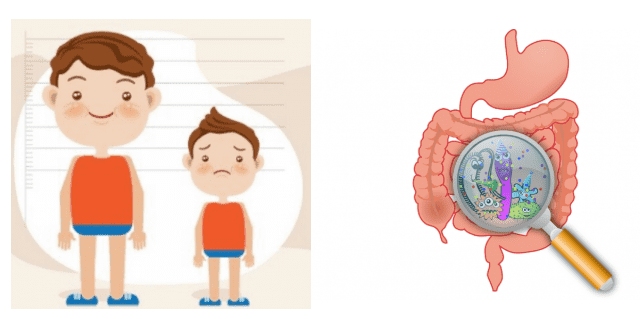 Stunting, which is defined as an individual who has a shorter height than most people, is one of the consequences of malnutrition. Malnutrition itself can be interpreted as malnutrition which results in stunting, namely short, or wasting, that is thin, or over nutrition which results in obesity. The condition of stunting in Indonesia is still concerning, from official data, the percentage of stunting children is still around 38%. Even Indonesia occupies the third worst position in Asian countries, after Timor Leste and India.
Stunting, which is defined as an individual who has a shorter height than most people, is one of the consequences of malnutrition. Malnutrition itself can be interpreted as malnutrition which results in stunting, namely short, or wasting, that is thin, or over nutrition which results in obesity. The condition of stunting in Indonesia is still concerning, from official data, the percentage of stunting children is still around 38%. Even Indonesia occupies the third worst position in Asian countries, after Timor Leste and India.
The cause of stunting there are several factors, but the main thing is the lack of nutritional intake. The following is a description of the cause and effect of stunting events, beginning with a lack of nutritional intake which has an impact on the immune system response that is imperfect so that children are susceptible to infectious diseases caused by pathogens marked by the emergence of diarrhea. Gastrointestinal infections also result in disorders of gut microbiota balance or dysbiosis. Impaired balance of gut microbiota results in weak protection of the digestive tract resulting in impaired permeability. The impact of gastrointestinal permeability disorders is the occurrence of malabsorption. Malabsorption results in a lack of nutritional intake. Thus the explanation of the causal events of nutrition.
The impact of stunting is not only limited to childhood but also continues in later life. Unless the body is short and less fit, stunting also causes impaired cognitive development in sufferers. It can even cause a national burden. Various efforts have been made to overcome stunting, even the Government also has various programs to overcome stunting through the relevant Ministries.
There is a relationship between stunting and gut microbiota, it is mentioned that in stunting children, the population of good bacteria decreases, on the other hand, the population of unfavorable bacteria increases. Research related to the consumption of indigenous Lactobacillus Plantarum Dad-13 probiotics by stunting children in Lombok has been conducted by the Gut Microbiota and UGM Probiotics Team. The results showed that this bacterium was able to improve the intestinal environment with an indication of increased concentrations of short-chain fatty acids (butyric acid, propionic acid, acetic acid), as well as decreased pH in feces.
Although the consumption of this probiotic can only significantly change the population of Lactobacillus, the results show that: more than half of the subjects experienced an increase in good bacteria, namely Bifidobacterium, and a decrease in the less favorable bacteria, Escherichia coli, and Klebsiella. Consumption of probiotics for two months has not been able to improve stunting, but these probiotics can improve intestinal environmental conditions and can increase body weight and BMI (Body Mass Index).
![]()
![]()

